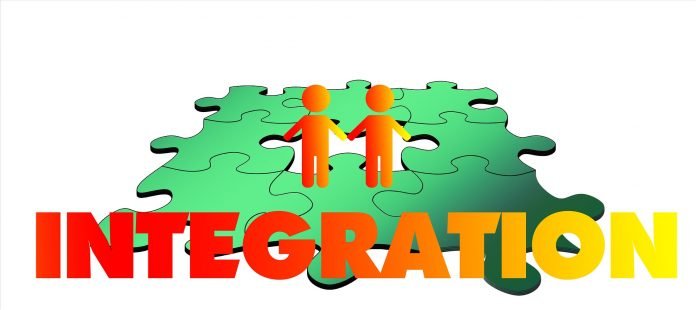South Africa Xenophobia: Spreading The Right Narrative
Foreign nationals in South Africa are in constant fear of attacks. Since the early 1990s, xenophobic violence has been a usual occurrence in South Africa. And this general onslaught against foreigners seems to be on the rise. The local haters don’t only target the so called ‘expats’ who at least, by all facts, can be associated as the people who have at one point in time taken their lands. They are going after people of their own kind – everyday immigrant hustlers from different parts of Africa. They harass, threaten, and loot their targets.
Before the 2008 xenophobic attacks, dozens of activists and scholars tried to convince the South African government to implement concrete measures that’d curb the recurrence of these unlawful attacks. However, the issue was taken seriously after the attacks (where lots of people were killed, and thousands of foreigners were displaced).
Although the government tried to curb the recurrence of this menace, all efforts seem abortive as the xenophobic violence keeps waxing stronger.
And here comes the big question — Why?
Prevention of xenophobic violence is a shared responsibility between the civil society and the government — both parties are to be blamed for the continuous deterioration of the relationship between the foreign communities and the local South African communities.
Whenever there’s a recurrence of xenophobic violence, the South African government keeps spilling out the same old unrefined story — laying blames on social issues and deep-rooted fear of the average South African Joe who’s scared of losing his jobs to an undeserved foreigner.
On the other hand, civil societies seem to be making more progress. At least pseudo-solutions are being offered. Yes, these solutions don’t necessarily resolve the core issue, but it gives birth to numerous forms of social awareness and baby steps are taken towards to the actualization of the desired goal.
However, these steps won’t get us anywhere. And instead of repeating the same old techniques, better solutions should be enforced to deal with the situation for good.
For instance, the current narratives about immigrants are causing more havoc and widening the relationship gap between locals and foreigners.
Like most reports about immigrants across the globe, the reports are usually half-told, and some of the pieces of the information are often left behind or just neglected. Most times, journalists tend to overlap these stories which result in miscommunication in the long run.
The false concept promotes a flawed thought pattern among immigrants. And most times, they tend to falsely assume that the message of suffering and hardship will sway the minds of South Africans locals to be more accommodating, tolerant, and friendly towards them.
Furthermore, foreigners are made to believe that spreading their stories of helplessness, neediness, and innocence translates to help, protection, and open doors to greener pastures from the host communities. However, regardless of how these victimization story is being spread, it does nothing to prevent political and private mercenaries from using the weakness of the general populace to exploit immigrants.
What’s more, the complexity of migration is beyond the comprehension of the average citizen — especially with the untold hardship the indigenous citizens are facing. These unstable conditions coupled with the human diversity and various social adjustments that come with migrations can be overwhelming to the host community.
To Stop Xenophobic Violence, You’ve got To Humanize Migration
Various factions support the victimization of immigrants. And each group seems to portray their views as being just and acceptable. To some certain factions, xenophobia is a just way of redirecting the opportunities and resources back to South Africans. For them, a shared wealth with foreigners brings about the regression of the country’s transformation agenda.
But the more educated faction knows that immigrants are not the primary problem of their country. The real problem stems from the inability of the government to live up to their promises to provide adequate infrastructure for her populace.
African immigrants here in the US cannot help but wonder what some South African immigrant haters would do if they somehow find themselves in the US? Will they walk around expecting the indigenous to be as mean, or would they hypocritically object to anyone who appears as intolerant as they’ve been?
In conclusion, no one knows this story much better than South Africans – someone once gave up his own peace for 27 years in demand for the peace of others. Nelson Mandela did not get his freedom by simply wishing it or by the amount of protests on the street of Johannesburg. He won freedom with the whole world on his side. His silent and yet amplified voice was joined by voices beyond the walls of Capetown and those beyond the map of Africa as he bravely demanded for what is right. It is time that South African immigrants haters learn that human beings are interdependent upon each other, and be more tolerant.



